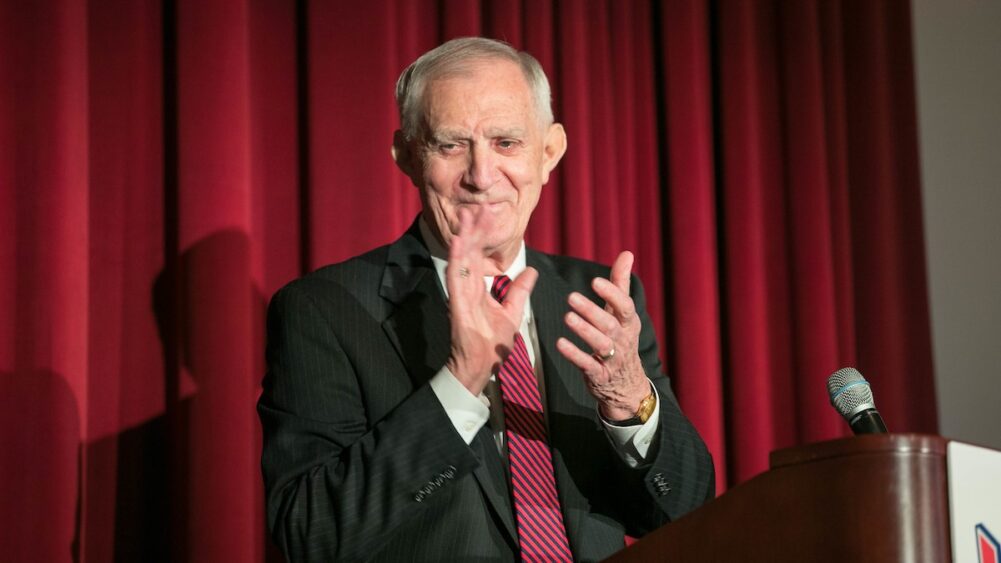Bill Rowe’s legacy at Missouri State University grew today as the former director of athletics and baseball head coach made a significant gift to the program.
The gift from Bill and Nydia Rowe is an endowment to the Missouri State Foundation that will fund Cost of Attendance (COA) for baseball student-athletes. COA is an annual stipend allowed by the NCAA that is over and above scholarships. It helps student-athletes cover expenses such as academic-related supplies, transportation and other similar items.
“Coach Rowe and Nydia continue to leave a lasting mark on Missouri State Athletics. No one loves this university more than Bill and Nydia,” said Kyle Moats, director of athletics.
“We are forever grateful for the contributions they have made and continue to make. Coach Rowe started our baseball program and led it to national success. This gift will assist our ongoing efforts to remain a nationally-competitive program.”
About Bill Rowe
Rowe established the Baseball Bears in 1964 and served as the team’s head coach until 1982, when he became Missouri State’s athletics director. He oversaw Missouri State’s transition to NCAA Division I athletics and the Missouri Valley Conference in 1990.
The native of Marionville, Missouri, was the first person to have his MSU baseball jersey retired. Additionally, the indoor training facility at Hammons Field bears his name.
“This is a continuation of the services and gifts made by Coach Rowe to the university he loves since he stepped onto our campus 60 years ago,” said Keith Guttin, Baseball Bears head coach. “This is a gift that will allow the baseball program to provide additional funds that are essential for the program going forward.”
In addition to scholarships that fully or partially fund tuition, fees, books and room and board, student-athletes receive annual COA stipends from their institutions. COA dollar amounts vary from campus to campus. Missouri State’s current COA is $4,070.
The gift is part of the Foundation’s Onward, Upward campaign, which has garnered more than $200 million of its $250 million goal.

